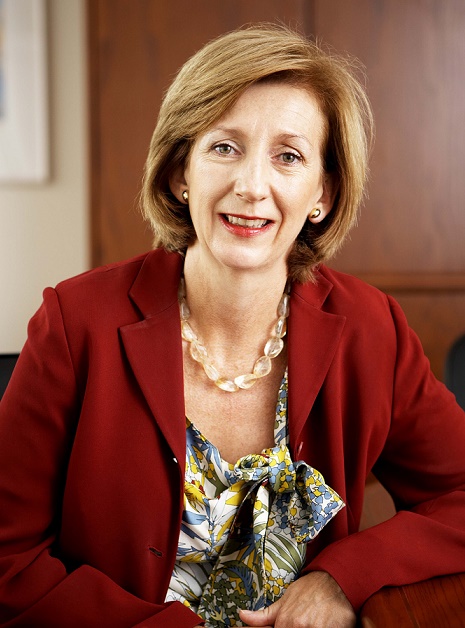The rewards of open data are being realised internationally.
Australia is being left behind and a radical revaluation of the opportunities and challenges in opening data is required to meet the compelling demand for more open data.
We now have a persuasive body of evidence to demonstrate that incremental change will not deliver the benefits of open data.[1]
The community wants government to use open data. A recent community attitudes survey by the Information and Privacy Commission NSW (IPC), for example, found strong support for open data in NSW: 83% of respondents agreed that de-identified information should be used to inform the planning and delivery of government services and enhance collaboration with the public in the development of government policies.[2]
Given the authority provided and expectations of the community, why are we not advancing these unrealised benefits?
Our progress has been arrested by identification of barriers, sometimes single barriers and sometimes a multitude of barriers, including:
- the operational environment and technology;
- fiscal arrangements and priorities;
- legal settings including privacy and security; and
- cultural constraints and workforce capabilities.
Advocates are positioned to address each of the many concerns with variable success. This approach is beset with fragmentation and delay.

Elizabeth Tydd is the NSW Information Commissioner, and CEO NSW Information and Privacy Commission
Enablers, not barriers
In NSW, we are advocating a different approach by focusing on enablers of open data, not barriers. This means identifying powerful and discrete key leverage points that successfully harness the sweeping transformation of digitalisation, and applying proven successful approaches to build further momentum and change.
To do this, the IPC engaged a multidisciplinary team of experts from the University of NSW to look at proven approaches to opening data. In identifying and highlighting the strategies applied in leading international counties we can provide insights and solutions to promote and support open data and importantly build a mature culture of trust and confidence.
The first of its kind in Australia, the research demonstrates how open data is being achieved through an examination of five international jurisdictions – the UK, US, France, Canada and New Zealand – and provides practical examples of enablers that could be considered in NSW. Each of these countries feature within the top international rankings of open data measures.[3]
The researchers looked at actions by local, regional and national governments to see what worked to drive the open data agenda.
In total, the research identified 36 proven enablers of open data.
The six types of enablers identified that recur across the most successful open data countries are:
- Leadership – The leadership enabler incentivises and sets the tone for Open Government and open data (six enablers identified).
- Legislation – Legislative enablers provide a directive framework from government setting rights and responsibilities (three enablers identified).
- Policy – The policy enabler provides a direction or principle for action and decision making to meet defined objectives. The objectives may be achieved in a variety of ways tailored to a department’s environment. In the context of government data, policies may be directed at specific datasets such as geo-spatial data, or at datasets with certain attributes, and such as datasets containing personal information which require de-identification of the information prior to release (seven enablers identified).
- Regulatory – The regulatory enabler provides authoritative and enforceable rules with an expectation of compliance to prevent harms or improve outcomes (six enablers identified).
- Culture and collaboration – includes actions within government to support open data and influence attitudes, engaging the community, horizontal sharing between government, citizens and the private sector (seven enablers identified).
- Operational – The operational enabler addresses the many challenges and support opportunities in the day-to-day process of making data open (seven enablers identified).
The research acknowledges NSW’s progress and, importantly, offers new and significant insights to inform our approach to opening up valuable NSW data resources.
The report proposes some specific priority actions for NSW under each enabler, such as:
- Adopting the International Open Data Charter (‘leadership’ enabler).
- Improving collaboration with the broader community around a range of potential issues, using concepts such as New Zealand's ‘Social License’ (‘culture and collaboration’ enabler).
- Including an anticipatory regulatory approach that promotes open data, but ensures ongoing evaluation and assessment of security and privacy risks (‘regulatory’ enabler).
- Publishing a complete catalogue of all datasets, including datasets that are restricted (‘operational’ enabler)
- Promoting an authorising environment for open data that authorises, harmonises and balances rights and responsibilities in the public interest (‘legislative’ enabler)
There remain areas where we need more insights and data to address concerns and show the value of open data. The report identified particular areas for further research, notably highlighting the need to demonstrate the positive impact of open data by:
- measuring the benefits of open data to the community and government in a consistent, transparent way
- measuring the direct financial and service delivery benefit to both the public and private sectors
- applying and measuring the effect of open data initiatives on public participation and government policy development.
By using an enabler approach, governments and citizens can confidently engage to enhance decision making, build trust and safely deliver productivity gains by achieving the aspiration of, “Open by default, protected where required.”
Elizabeth Tydd is the NSW Information Commissioner, CEO NSW Information and Privacy Commission (IPC), and NSW open data advocate.
[1] Data Availability and Reuse, Productivity Commission Report 8 May 2017; p.2.
[2] Report on the Operation of the Government Information (Public Access) Act 2009 2015-16; p. 11.
[3] Conditions Enabling Open Data and Promoting a Data Sharing Culture 2017; A Report for the Information and Privacy Commission of NSW, by Dr Alana Maurushat p.19.








